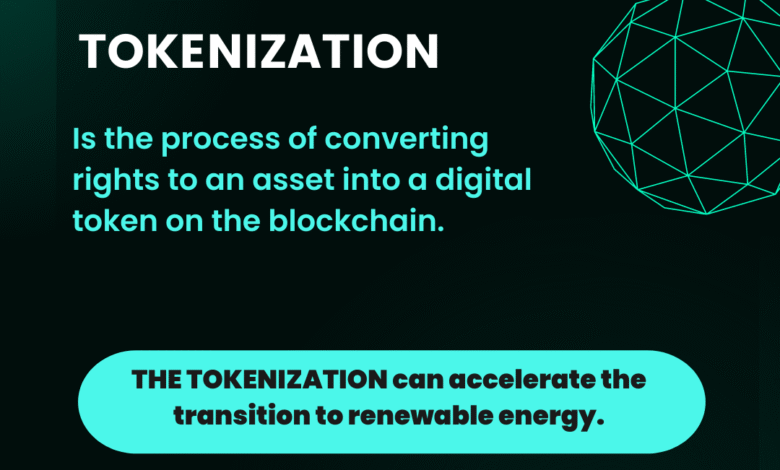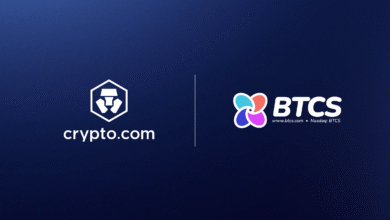Green Energy Tokenization: Unlocking Sustainable Investing

Green Energy Tokenization is redefining the landscape of sustainable investing by breaking down barriers that once limited participation to only large institutional investors. Through the innovative use of blockchain technology, tokenized assets enable individuals to invest in renewable energy projects with ease and affordability, promoting a more equitable and decentralized finance environment. By allowing fractional ownership of solar farms, for example, everyday investors can contribute to and benefit from the green energy movement, fostering a culture of sustainability and environmental stewardship. This democratization is not merely a financial revolution; it represents a shift towards more accessible and diversified investment opportunities in the growing sector of renewable energy investment. As the world increasingly prioritizes sustainability, Green Energy Tokenization paves the way for a future where everyone can partake in the lucrative benefits of green finance.
The evolution of green energy investments is being significantly influenced by asset tokenization, a groundbreaking approach that revolutionizes how renewable projects attract capital. By leveraging decentralized finance principles and blockchain innovations, this method allows smaller investors to become stakeholders in eco-friendly initiatives, thus reshaping the dynamics of sustainable investing. Instead of being confined to affluent entities, the opportunity to invest in vital green technologies is now within reach for a broader audience, enhancing engagement and support for sustainability. This grassroots approach not only democratizes capital allocation but also boosts the overall penetration of renewable energy in global markets. With tokenized assets at the forefront, the future of environmental finance looks increasingly bright and inclusive.
Understanding Green Energy Tokenization
Green energy tokenization refers to the process of converting ownership rights of renewable energy assets into digital tokens on a blockchain. This transformation plays a critical role in democratizing access to sustainable investing by allowing smaller investors to participate in large-scale projects that were previously restricted to institutional players due to their high capital requirements. By leveraging blockchain technology, tokenization not only breaks down the financial barriers to entry but also enhances the transparency and security of investments in the green energy sector.
The beauty of green energy tokenization lies in its ability to foster community engagement and participation. Traditional renewable energy investments often require significant upfront capital, deterring many potential investors. With tokenization, individuals can purchase fractional ownership through tokens, enabling them to invest in various projects such as solar farms or wind energy initiatives. This shift not only makes sustainable investing more accessible but also encourages a broader investment in renewable energy, thus accelerating the transition towards a greener future.
Frequently Asked Questions
What is Green Energy Tokenization and how does it relate to sustainable investing?
Green Energy Tokenization is the process of converting ownership rights of renewable energy assets into digital tokens on a blockchain. This method democratizes sustainable investing by allowing individual investors to participate in large-scale green projects that were previously accessible only to institutional players. By lower barriers to entry, tokenization enables a wider pool of capital to support renewable energy investments.
How does blockchain technology enhance Green Energy Tokenization?
Blockchain technology provides the transparency and security needed for Green Energy Tokenization. It allows for the creation of immutable records of ownership and transactional history, fostering trust among investors. Additionally, smart contracts can automate the distribution of passive income based on actual energy production, further enhancing the appeal of investing in tokenized renewable energy projects.
What are the benefits of investing in tokenized assets related to renewable energy?
Investing in tokenized assets related to renewable energy offers several benefits, including lower investment thresholds for individuals, access to income from large-scale projects such as solar farms, and the potential for both financial returns and positive environmental impacts. Tokenization transforms renewable energy investments into more inclusive opportunities, ensuring that anyone can invest in and support sustainable projects.
What challenges do Green Energy Tokenization initiatives face?
Green Energy Tokenization initiatives face challenges such as regulatory hurdles, technology limitations, stable pricing concerns, and the need for transparency. While tokenization provides innovative solutions, addressing these challenges is crucial to ensure the successful implementation and scalability of tokenized renewable energy projects.
How can community engagement improve the outcomes of Green Energy Tokenization projects?
Community engagement is vital for the success of Green Energy Tokenization projects. It allows investors to participate in governance decisions, ask questions, and directly influence the project’s trajectory. Active involvement fosters accountability and helps mitigate risks, ensuring that tokenized ecosystems align with community goals and maintain long-term sustainability in the green finance sector.
What role do regulators play in the development of Green Energy Tokenization?
Regulators play a crucial role in the development of Green Energy Tokenization by establishing a framework that balances innovation with risk management. They must collaborate with blockchain companies to create regulatory sandboxes that enable the experimentation of new financial products while ensuring consumer protection. A unified, global approach to regulation would further promote responsible growth in the tokenized green energy market.
In what ways does tokenization facilitate decentralized finance (DeFi) in green energy investment?
Tokenization facilitates decentralized finance (DeFi) in green energy investment by allowing individuals to invest in and earn returns from renewable energy projects without intermediaries. This decentralized approach enhances liquidity and accessibility, empowering investors to directly support sustainable energy initiatives while promoting a more inclusive financial ecosystem.
How does Green Energy Tokenization contribute to energy autonomy and environmental sustainability?
Green Energy Tokenization contributes to energy autonomy by enabling broader participation in renewable energy projects, shifting investment from large institutional players to everyday individuals. This expanded investment fosters the growth of sustainable energy installations, directly supporting environmental goals and aiding in the transition towards a future powered by clean, renewable energy.
| Key Aspects | Details |
|---|---|
| Tokenization | Converting ownership rights of tangible assets into divisible digital tokens on a blockchain. |
| Democratization of Investment | Lowering barriers for individual investors to participate in green energy projects. |
| Challenges | Regulatory hurdles, stable pricing, technological limitations, and the need for transparency. |
| Smart Contracts | Automating the distribution of earnings linked to actual energy produced by green projects. |
| Regulatory Balance | Maintaining innovation while managing risks associated with decentralized technologies. |
| Global Standards | The need for international guidelines on the classification and regulation of tokenized green energy assets. |
Summary
Green Energy Tokenization offers a revolutionary pathway to democratize investments in sustainable projects, making green energy accessible to all investors, not just large institutions. By breaking down ownership through blockchain technology, tokenization facilitates lower entry costs, allowing individuals to contribute to and financially benefit from renewable energy initiatives. As we navigate the challenges surrounding regulations and market conditions, the potential of tokenization to accelerate green energy adoption while ensuring transparency and fairness is paramount. By fostering a collaborative approach among stakeholders and advocating for global standards, we can unlock a future where sustainable energy investments thrive.




